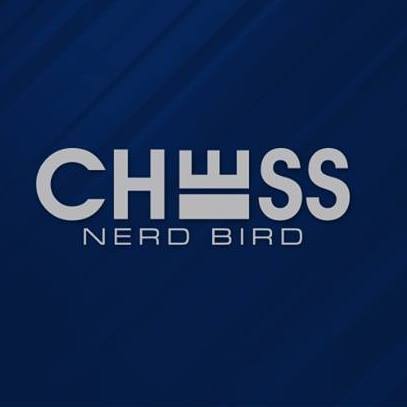Have A Goal (Stronger Players Are Human Too)
Over the past week or two I haven't really spent that much time on improving my chess skills. I just felt that I was hitting my head against a wall and not really making much improvement. I have also been playing against much stronger players. Even though I have been losing quite a bit recently I have also been putting up some decent fights. There are a few things that I have learned over these past few months by playing up that I want to capture in this post.
While I've never been afraid of playing higher rated players, I still have a decent level of respect for their higher rating. This can and has cost me not to play objectively better moves simply because I felt they could see deeper into the position than I can (not always true by the way).
While the stronger players may know a little more about planning and overall strategy, it is not always that much better than my own knowledge.
Stronger players don't always know openings better or deeper than myself. Of course, I don't spend that much time on my openings. I prefer to sharpen my tactics and endgame skills.
The biggest thing I have learned is that stronger players follow these steps. Now I have hard time saying steps because it isn't like a checklist that they mark off in their head or even a process they follow but just overall things they do during a game. Some of these happen simultaneously and sometimes only a few. Nonetheless, here they are:
1. They assess the position to the best of their abilities.
2. They use their pattern recognition to check for tactical ideas in the position. This is done by certain signs in the position that could indicate that a tactic exists. Then, instead of calculating random moves, they will determine what the goal of the tactic would be and then calculate based on that goal. If they cannot achieve the goal then they will continue with the next "step".
3. They find moves that help improve their position and then check these moves for tactical or positional defects and evaluate the possible positions to the best of their abilities.
4. Finally they select the move they feel gives them the best position possible.
My biggest learning was calculating with a goal in mind. Before, I was just calculating to calculate. Now I am beginning to see how to calculate for tactics but also how to use tactics to justify or eliminate possible candidate moves. These are lessons that are taught in books but until they have practical value for you then they are just great words of advice.
I still respect the higher rated players but I understand that they are just human like me. While I may not be on the same level yet, I am not far away and I have the confidence that I will be able to beat them very soon on a consistent basis. The confidence is what I was missing before, but not anymore.
